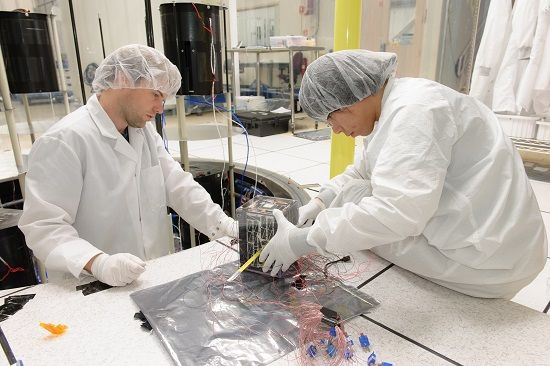A new 3-D microprinting process allows scientists to easily manufacture tiny, complex metal components. The used technology was designed by ETH researchers years ago for biological research and has now been further developed for a completely different application.
2 weeks ago, I posted a big announcement was coming; well we have officially received it. Now, the question is “WILL YOU BE READY?” Within less than 4 years (2020) Quantum will be available. Everyone needs to be planning and getting budgets and resources in place for this massive transformation that is coming within 4 years. It will be expensive, time consuming, and a lot of prep work around business and it needs to be assessed, planned, and position to onboard quickly to quantum because other countries (including hackers) are going to be on quantum as well meaning more powerful network and platforms to attack older systems. https://lnkd.in/baSZrBY
Quantum computing will change lives, society and the economy and a working system is expected to be developed by 2020 according to a leading figure in the world of quantum computing, who will talk tomorrow Jan. 21, 2016 at the World Economic Forum (WEF) in Davos, Switzerland.
Professor O’Brien, Director of the Centre for Quantum Photonics at the University of Bristol and Visiting Fellow at Stanford University, is part of a European Research Council (ERC) Ideas Lab delegation who have been invited to talk at the annual meeting to industrial and political leaders of the world, including Prime Minister David Cameron. The session will discuss the future of computing and how new fields of computer sciences are paving the way for the next digital revolution.
Quantum computing has the capability to unlock answers to some of humanity’s most pressing questions that are presently unsolvable with current computing technologies. In 2014, the UK government invested over £270 million in the development of quantum technologies, ensuring that the UK becomes the epicentre of a technology revolution and Professor O’Brien has been leading the development of quantum computing using light in its quantum state — the photon — as the key ingredient.
Amazing stuff!
Image-analyzing software has been a possibility for a while now. It’s how Google’s reverse image search works. It’s how you are able to deposit a check via ATM or even smartphone. Image creation is a newer development. Google’s Deep Dream, released last year, recreates images that are fed to it by compositing other images, shapes, and colors into a twisted version of the original. The obvious next step here is software that can create an image from a description, which WordsEye has gotten to first.
WordsEye is a new software that converts language to 3-D images. In its current beta state, WordsEye’s images are constructed from pre-existing, manipulatable 3-D models, textures, and light sources. The results are surreal, cartoon-y and a little unsettling. But don’t let this detract from such an advancement in artificial intelligence.
A basic description for WordsEye to interpret might look like this:
Create 3D scenes simply by describing them and share your creations with friends. A new world of visual expression and a new way to communicate and express yourself online.
CAPE CANAVERAL, Fla. (AP) — The solar system may have a ninth planet after all.
This one is 5,000 times bigger than outcast Pluto and billions of miles farther away, say scientists who presented “good evidence” for a long-hypothesized Planet X on Wednesday.
The gas giant is thought to be almost as big as its nearest planetary neighbor Neptune, quite possibly with rings and moons. It’s so distant that it would take a mind-blowing 10,000 to 20,000 years to circle the sun.
Graphene’s properties make it a tantalizing target for semiconductor research. Now a team from Princeton has showed that flakes of graphene can work as fast, accurate optical capacitors for laser transistors in neuromorphic circuits.
MPs in the British Parliament are being asked to consider the question of introducing a universal basic income paid unconditionally to all citizens.
An Early Day Motion on the policy, tabled by Green Party MP Caroline Lucas, calls on the Government to commission research into the idea’s effects and examine its feasibility to replace the UK’s existing social security system.
The motion, which raises the profile of the idea but is very unlikely to be adopted into law, says the policy “has the potential to offer genuine social security to all while boosting entrepreneurialism”.
Chrome is about to load web pages a lot faster than you’ve experienced up until now. Thanks to a new compression algorithm called Brotli, which Google introduced last September, Chrome will be able to compress data up to 26 percent more than its existing compression engine, Zopfli, which is an impressive jump.
According to Google’s web performance engineer Ilya Grigorik, Brotli is ready to roll out, so Chrome users should expect to see a bump in load times once the next version of Chrome is released. Google also says Brotli will help mobile Chrome users experience “lower data transfer fees and reduced battery use.” The company is hailing Brotli as “a new data format” that Google hopes will be adopted by other web browsers in the near future, with Firefox seemingly next in line to adopt it. But for now, expect to notice your web pages loading a bit faster in the coming weeks.
Update: January 20th 10:30AM: Updated to note that Firefox will also adopt Brotli in a future update.








